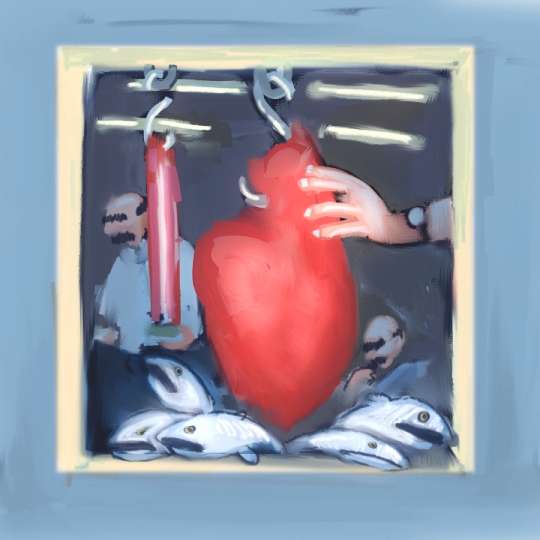Lisboa está a mudar, e a experiência de “jantar fora” em Lisboa também mudou. Há muita mais oferta e embora Lisboa fosse sempre uma boa cidade para comer, agora é fabulosa. Pessoalmente, estaria ainda mais contente se houvesse mais comida chinesa, tailandesa ou do médio oriente com qualidade, mas isso sou eu a ser gulosa.
Como a praga dos tuk tuks e o excesso de hotéis e hostels, a explosão em restauração está a mudar a face da cidade, o que é positivo. Evolução é evolução. Mas Lisboa tem de tomar cuidado para não perder uma das suas mais-valias – a tasca.
Daqui a uns anos, é possível que os turistas tenham ultrapassado a sua paixão por Lisboa, ou que a cidade tenha sido finalmente destruída pelas despedidas de solteiro britânicas e irlandesas. Os hotéis poderão estar vazios e haverá esqueletos de tuk tuks a apodrecer nos passeios. Mas muito pior seria se as tascas desaparecessem.
Imagine como seria Lisboa sem tascas, extintas depois de todo o dinheiro ter sido investido em hamburguerias — milhares de hamburguerias —, restaurantes luxuosos com papel de parede irónico e tinta prateada nos tectos, cadeias de cafés e restaurantes giros que fazem coisas ligeiramente estranhas com chouriços, e mercados convertidos em food courts, cheios de delícias caras. Imagine as ruas de Lisboa sem as típicas montras-frigoríficos, com as suas montagens de morte penduradas lá dentro. Imagine centenas de homens rabugentos sem nada para fazer.
Não há triunfo maior do que pôr um empregado rabugento a sorrir. Dá muito trabalho. Não há maior alegria do que sermos finalmente aceites como clientes habituais numa tasca pequena (sabemos que fomos aceites numa tasca quando, ao entrarmos, os outros clientes não se calam e olham para nós).
Não há melhor do que uma tasca, porque uma tasca nunca desilude. Tem fome? Tem pressa? Vai à tasca. Entra com baixas expectativas e tem de ser um dia fantasticamente mau para sair desapontado. É barato, é simples, é travessas de alumínio e é serviço brusco, com bons ou maus modos. Não faz diferença. As tascas não são para ser um evento. Não são para nos sentirmos especiais. São para alimentar. Algumas delas parecem ter existido desde sempre… com o mesmo pessoal.
A comida da tasca fica normalmente entre o “bom” e o “incrivelmente bom”. O pior que podemos comer é algo ligeiramente insosso ou demasiado salgado, ou feio, ou parecido com couro de sapato. Um bitoque normalíssimo com um ovo a cavalo, a nadar num molho sem descrição e acompanhado de batata frita, é uma das coisas a que já me habituei a chamar comida de conforto. Ou jaquinzinhos fora-da-lei com arroz de tomate, ou uma feijoada numa panela de alumínio. Ou queijo fresco contrabandeado do campo e maçãs assadas que já foram assadas há uns dias, mas é só uma maçã… não vai matar ninguém.
Adoro as tascas. Devíamos fazer um grande esforço nacional para as não perder, porque, uma vez perdidas, será impossível recuperar a ideia da tasca. Ninguém no futuro vai dizer “Tive uma grande ideia! Quero um restaurante, pequeno e barato, com uma montra que tenha coisas mortas dentro dela, com mosaicos na parede que façam lembrar uma casa de banho, luz fluorescente, as travessas e panelas em alumínio, as loiças de uma cerâmica com padrão feio, e toalhas de mesa em papel. Ah! e o pessoal consistirá apenas em homens rabugentos, excepto um, que será hilariante.”
Quantas vezes já saiu de um restaurante mais caro a sentir uma grande desilusão, porque não foram satisfeitas as suas expectativas? Alguma vez sentiu a mesma coisa ao sair de uma tasca?
Lisboetas, estimem as vossas tascas.
(traduzido do original inglês pela autora)
The tasca
Just as in so many other ways that Lisbon is changing, eating out is not what it used to be. There is more food on offer than ever before and while Lisbon was always a good place to eat, now it’s fabulous. Personally, I’d be happier if there were some more decent Chinese and Thai and Middle Eastern restaurants, but that’s just me being greedy.
Like the tuk tuk plague and the probable over-abundance of hotels and hostels, the restaurant boom is changing the character of the city, which is fine. Evolution is evolution. But Lisbon has to be careful that it doesn’t lose one of its greatest assets for ever – the tasca.
In a few years’ time, the tourists might have got over their love affair with Lisbon or the hen parties may have just destroyed it. The hotels may be empty and skeletons of tuk tuks may litter the roadsides. But worse than all that, many tascas as we know them may have disappeared.
Imagine how it would be if all the tascas went, fading away because all the money went on hamburger joints — oh so many hamburger joints — and lush swanky places with semi-ironic flock wallpaper and silver painted ceilings, and sushi, good and terrible, and city wide chains of quite nice restaurants that have done something a bit different with a chouriço, and food courts filled with delicious but expensive little somethings. The streets of Lisbon emptied of those gruesome little window fridges with hilarious montages of death suspended in them. Hundreds of grumpy men with nothing to do.
There is no greater triumph for me than to get a grumpy old tasca waiter to smile. It takes a lot of work. There is no greater joy than becoming a local in a small, local tasca. You know you’ve arrived when the rest of the clientele doesn’t stop talking and turn round to see who this stranger is.
There is nothing better than a tasca, because a tasca never lets you down. You are hungry. You are in a hurry. You go to a tasca. You go in with low expectations and it has to be an incredibly bad day for you to leave feeling underwhelmed. It’s cheap, it’s simple, it’s aluminium dishes and it’s brusque service, cheerful or not. It doesn’t matter. They’re not there for an occasion, they’re not there to make you feel special. They’re there for you to get fed. And some of them seem to have been there for hundreds of years… with the same staff.
The food you get in a tasca is usually on the scale of “OK” to “amazing”. The worst thing you’ll get is something that’s a bit bland or over salted, a bit ugly or a bit leathery. A bog standard bitoque with an egg on top, swimming in nondescript milky sauce and chips to soak it up with is one of the things I now call comfort food. Or illegally small jaquinzinhos with tomato rice, or a feijoada served up in a big aluminium pan. Fresh cheese smuggled in from the countryside, and random boiled eggs, and baked apples that have been in the cabinet for a few days, but who cares? It’s just a baked apple, it isn’t going to kill you.
I love them. We must not lose them, because we could never get them back. No one in the future is going to say “hey, I’ve had a great idea! I want to make small, cheap restaurant with a huge hunk of meat and a bunch of fish hanging in the window, with wall tiles that look like they were made for a bathroom, and the lighting will be fluorescent strip lighting and the tableware will be half aluminum, half ugly printed ceramics, and the tablecloths will be paper, really easily shredded paper. Oh, and the staff will be really grumpy, except for one of them, who will be hilarious.”
How often do you leave a more expensive restaurant feeling disappointed, because the place just didn’t live up to your expectations? Have you ever felt like that leaving a tasca?
Cherish your tasca, Lisbon.













